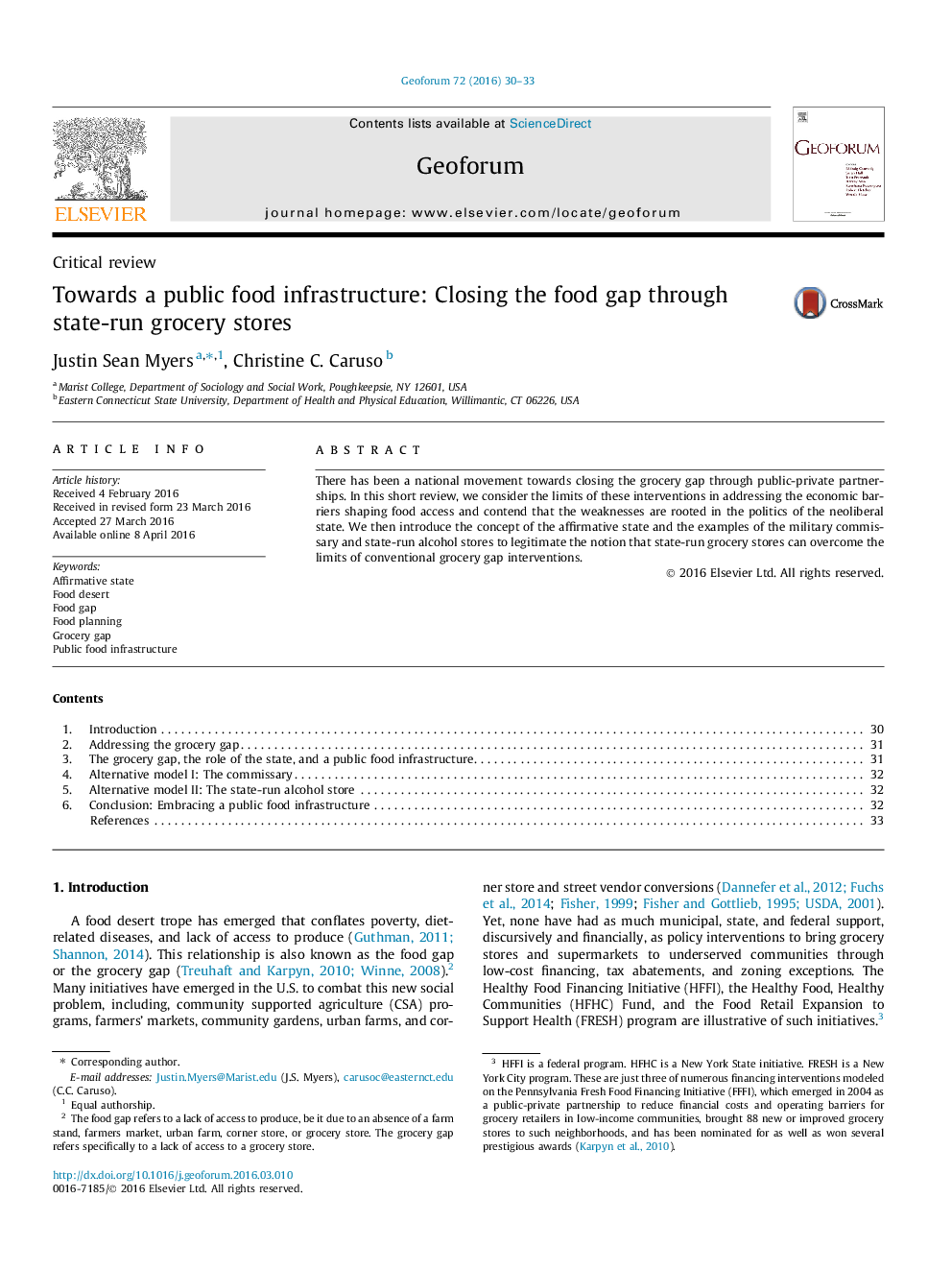| Article ID | Journal | Published Year | Pages | File Type |
|---|---|---|---|---|
| 5073516 | Geoforum | 2016 | 4 Pages |
â¢Grocery gap initiatives may fail to increase food access for low-income residents.â¢Grocery gap initiatives need to do more than merely create a good climate for business.â¢Food desert discourse needs to shift from geographic barriers to economic barriers.â¢The state can invest in food access for all through publicly owned grocery stores.
There has been a national movement towards closing the grocery gap through public-private partnerships. In this short review, we consider the limits of these interventions in addressing the economic barriers shaping food access and contend that the weaknesses are rooted in the politics of the neoliberal state. We then introduce the concept of the affirmative state and the examples of the military commissary and state-run alcohol stores to legitimate the notion that state-run grocery stores can overcome the limits of conventional grocery gap interventions.
